What are cell walls of fungi made of
Home » » What are cell walls of fungi made ofYour What are cell walls of fungi made of images are ready. What are cell walls of fungi made of are a topic that is being searched for and liked by netizens now. You can Download the What are cell walls of fungi made of files here. Find and Download all free images.
If you’re looking for what are cell walls of fungi made of images information related to the what are cell walls of fungi made of topic, you have visit the ideal site. Our site always gives you suggestions for downloading the highest quality video and image content, please kindly search and find more informative video articles and images that match your interests.
What Are Cell Walls Of Fungi Made Of. It is made from the derivatives of glucosamine glucose unit to which nitrogen group is attached. Cell wall composition varies from species to species and also depends on the developing stage of the organism. Cell walls of fungi are composed of chitin which made up of many N-acetylglucosamines NAG. The cell walls of fungi is made up of chitin.
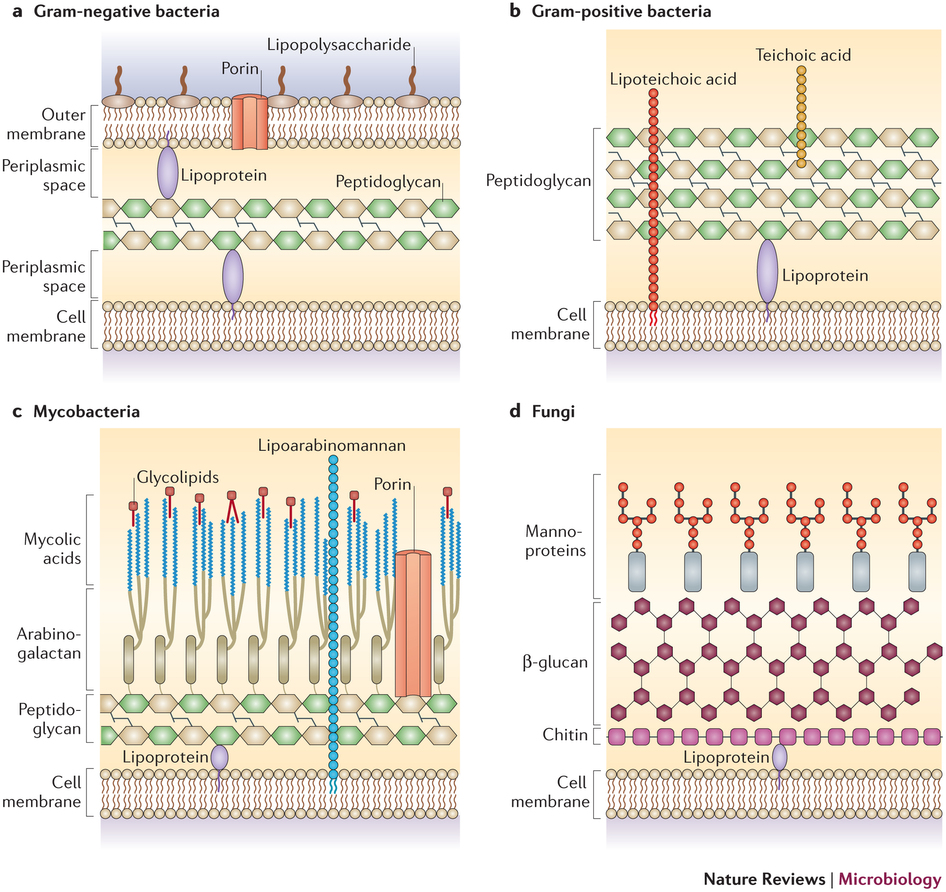 How Do Cell Walls Differ Among Bacteria Fungi And Plants Socratic From socratic.org
How Do Cell Walls Differ Among Bacteria Fungi And Plants Socratic From socratic.org
The composition of fungal cell walls is relatively simple and includes substances not typically found in animal and plant hosts eg chitin. Like plant cells fungal cells have a thick cell wall. True fungi do not have cellulose in their cell walls but some fungus-like organisms do. In the late 1990s scientists discovered that fungi actually diverged from animals around 9 million years later than plants did making them more. In general fungal cell walls share a common chemical structure composed of homo- and heteropolysaccharides protein protein-polysaccharide complexes lipids melanin and polysaccharide chains of chitin. For a long time fungi were thought to be plant-like organisms given their tendency to grow in soil and rigid cell walls.
The rigid layers of fungal cell walls contain complex polysaccharides called chitin and glucans unlike the cell walls of plants which contain cellulose.
Exoskeleton of insects crabs and lobsters is also chitin. Like plants fungi cells are surrounded by cell walls but the cell walls do not have chloroplasts which are the units in which photosynthesis happens because fungi do not make food from the sun. It is made from the derivatives of glucosamine glucose unit to which nitrogen group is attached. The composition of fungal cell walls is relatively simple and includes substances not typically found in animal and plant hosts eg chitin. For a long time fungi were thought to be plant-like organisms given their tendency to grow in soil and rigid cell walls. The fungal cell wall is a complex and flexible structure composed basically of chitin α- and β- linked glucans glycoproteins and pigments.
 Source: biologydiscussion.com
Source: biologydiscussion.com
In general fungal cell walls share a common chemical structure composed of homo- and heteropolysaccharides protein protein-polysaccharide complexes lipids melanin and polysaccharide chains of chitin. The composition of cell wall is variable among the different groups of fungi or between the different species of the same group. The fungal cell wall is composed of glucans and chitin. The chemical composition of the cell wall is closely correlated with the taxonomic classification of fungi. A The Cell Wall of the Fungal Cell.
 Source: socratic.org
Source: socratic.org
Chitin glucans proteins and melanin. Exoskeleton of insects crabs and lobsters is also chitin. The fungal cell wall is composed of glucans and chitin. The cell walls of fungi is made up of chitin. Chitin also found in the exoskeleton of insects gives structural strength to the cell walls of fungi.
Source: quora.com
It is located outside the cell membrane. Hence the correct option is A. Most true fungi have a cell wall consisting mainly of chitin and other polysaccharides. Cell wall composition varies from species to species and also depends on the developing stage of the organism. Unlike those of plants and oomycetes fungal cell walls do.
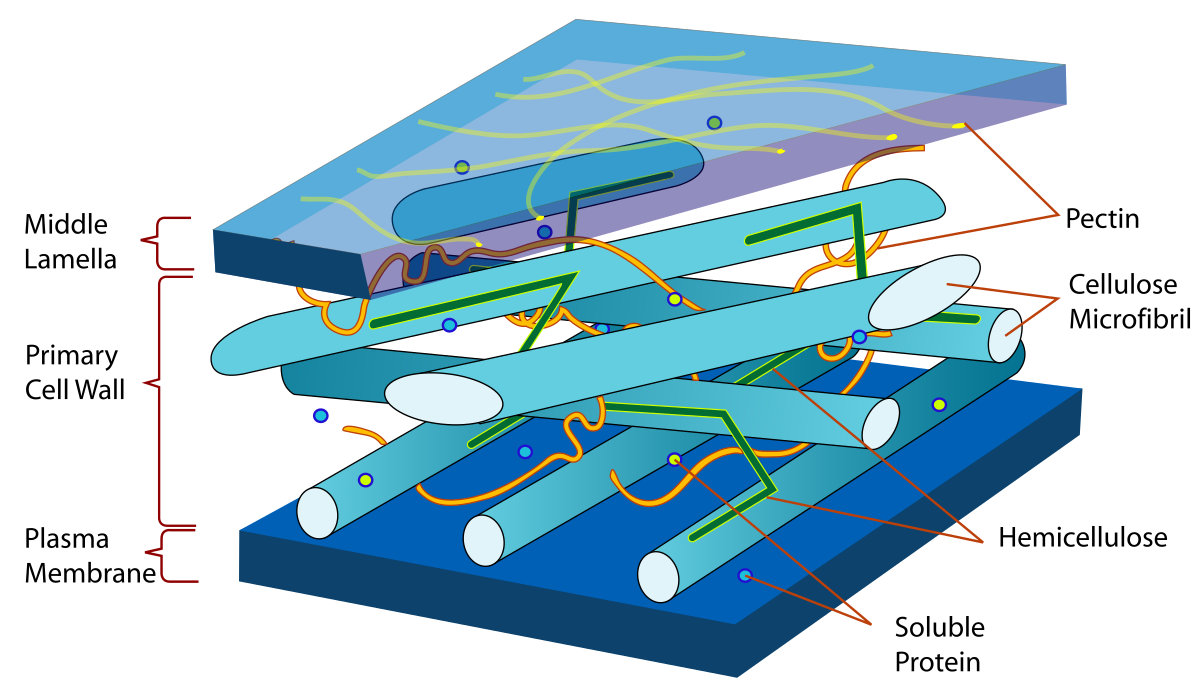 Source: simple.wikipedia.org
Source: simple.wikipedia.org
A The Cell Wall of the Fungal Cell. It is located outside the cell membrane. Cell wall composition varies from species to species and also depends on the developing stage of the organism. Hence the correct option is A. A fungal cell is made up of a nucleus and organelles.
 Source: researchgate.net
Source: researchgate.net
The fungal cell wall is composed of glucans and chitin. A The Cell Wall of the Fungal Cell. Chitin also found in the exoskeleton of insects gives structural strength to the cell walls of fungi. Bacterial cell walls are composed of a sugar and amino acid polymer called peptidoglycan. The fungal cell wall is composed of glucans and chitin.
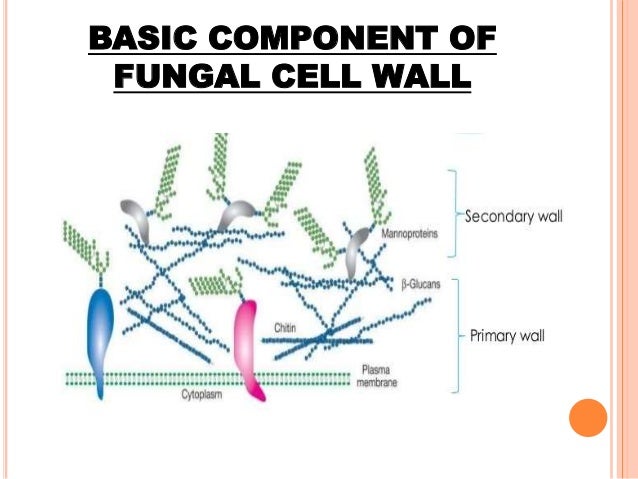 Source: slideshare.net
Source: slideshare.net
The composition of cell wall is variable among the different groups of fungi or between the different species of the same group. True fungi do not have cellulose in their cell walls but some fungus-like organisms do. The cell walls of fungi are made up of polysaccharides including A. Exoskeleton of insects crabs and lobsters is also chitin. It is located outside the cell membrane.
 Source: quora.com
Source: quora.com
The cell walls of fungi are made up of polysaccharides including A. Hence the correct option is A. Chitin is an example of carbohydrates and is the modified form of cellulose. A plant cell wall is composed of cellulose a complex sugar. The composition of cell wall is variable among the different groups of fungi or between the different species of the same group.
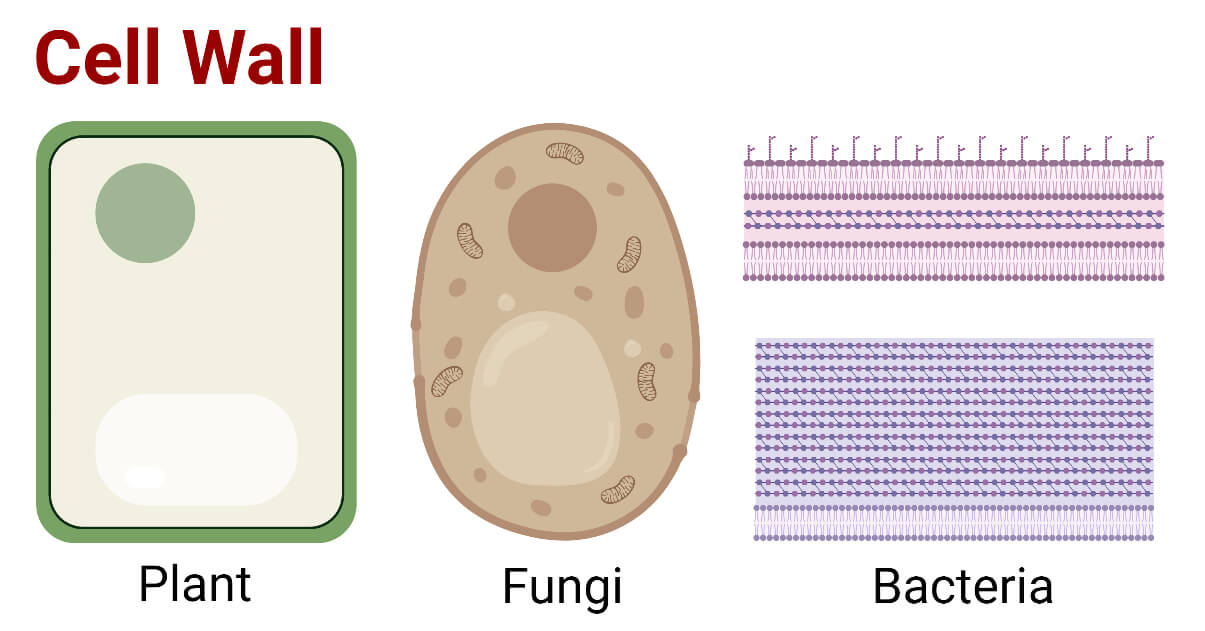 Source: microbenotes.com
Source: microbenotes.com
Cellulose is the major component of cotton fiber and wood and it is used in paper production. While glucans are also found in plants and chitin in the exoskeleton of arthropods fungi are the only organisms that combine these two structural molecules in their cell wall. Even a small lesion in the cell wall can result in extrusion of cytoplasm as a result of the internal turgor pressure of the protoplast. The fungal cell wall is a complex and flexible structure composed basically of chitin α- and β- linked glucans glycoproteins and pigments. Algae and different members of archaea have cell walls composed of different materials.
 Source: sciencedirect.com
Source: sciencedirect.com
Like plants fungi cells are surrounded by cell walls but the cell walls do not have chloroplasts which are the units in which photosynthesis happens because fungi do not make food from the sun. Cellulose is the major component of cotton fiber and wood and it is used in paper production. In fungi cell walls are made chitin. While glucans are also found in plants and chitin in the exoskeleton of arthropods fungi are the only organisms that combine these two structural molecules in their cell wall. The composition of fungal cell walls is relatively simple and includes substances not typically found in animal and plant hosts eg chitin.
Source: quora.com
Algae and different members of archaea have cell walls composed of different materials. The composition of cell wall is variable among the different groups of fungi or between the different species of the same group. Chitin is an example of carbohydrates and is the modified form of cellulose. Like plants fungi cells are surrounded by cell walls but the cell walls do not have chloroplasts which are the units in which photosynthesis happens because fungi do not make food from the sun. Cell walls of fungi are composed of chitin which made up of many N-acetylglucosamines NAG.
 Source: researchgate.net
Source: researchgate.net
In general fungal cell walls share a common chemical structure composed of homo- and heteropolysaccharides protein protein-polysaccharide complexes lipids melanin and polysaccharide chains of chitin. True fungi do not have cellulose in their cell walls but some fungus-like organisms do. Bacterial cell walls are composed of a sugar and amino acid polymer called peptidoglycan. Even a small lesion in the cell wall can result in extrusion of cytoplasm as a result of the internal turgor pressure of the protoplast. It is made from the derivatives of glucosamine glucose unit to which nitrogen group is attached.
 Source: researchgate.net
Source: researchgate.net
Answer verified by Toppr. True fungi do not have cellulose in their cell walls but some fungus-like organisms do. Protozoans and animals do not have a cell wall. It is made from the derivatives of glucosamine glucose unit to which nitrogen group is attached. Cell walls of fungi are composed of chitin which made up of many N-acetylglucosamines NAG.
Source: quora.com
A fungal cell is made up of a nucleus and organelles. In the late 1990s scientists discovered that fungi actually diverged from animals around 9 million years later than plants did making them more. Bacterial cell walls are composed of a sugar and amino acid polymer called peptidoglycan. A fungal cell is made up of a nucleus and organelles. Cell walls of fungi are composed of chitin which made up of many N-acetylglucosamines NAG.
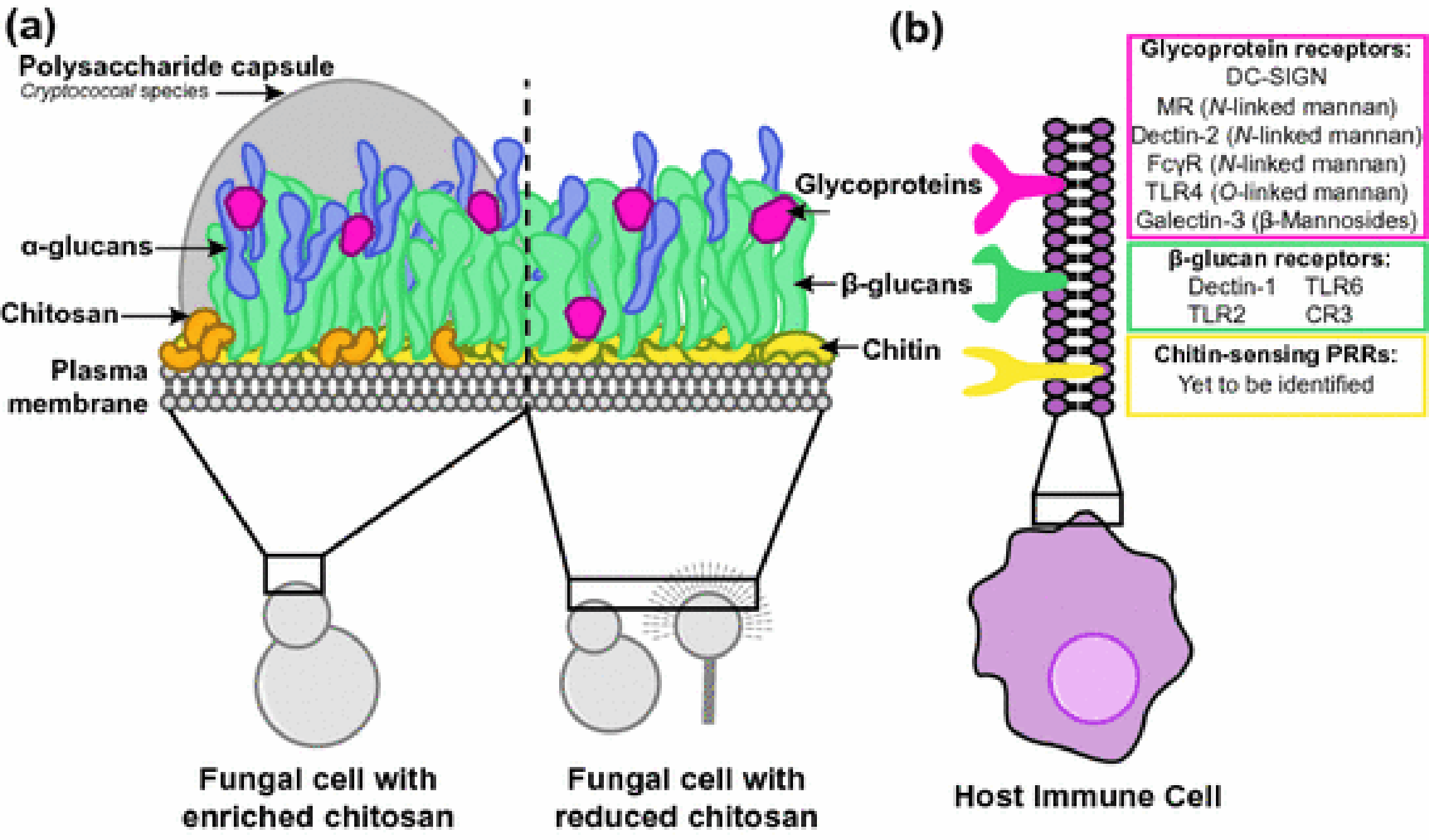 Source: link.springer.com
Source: link.springer.com
Hence the correct option is A. Cell wall composition varies from species to species and also depends on the developing stage of the organism. Even a small lesion in the cell wall can result in extrusion of cytoplasm as a result of the internal turgor pressure of the protoplast. The composition of cell wall is variable among the different groups of fungi or between the different species of the same group. The chemical composition of the cell wall is closely correlated with the taxonomic classification of fungi.
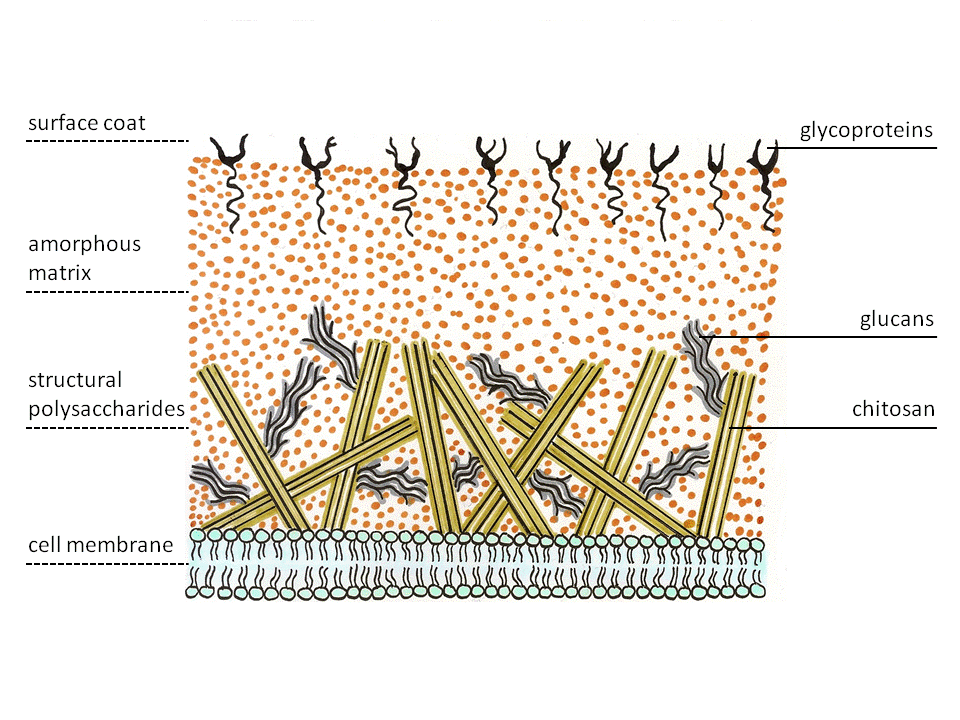 Source: earth.com
Source: earth.com
Exoskeleton of insects crabs and lobsters is also chitin. Cell wall composition varies from species to species and also depends on the developing stage of the organism. Protozoans and animals do not have a cell wall. Like plants fungi cells are surrounded by cell walls but the cell walls do not have chloroplasts which are the units in which photosynthesis happens because fungi do not make food from the sun. Bacterial cell walls are composed of a sugar and amino acid polymer called peptidoglycan.
 Source: byjus.com
Source: byjus.com
The fungal cell wall is also essential to prevent osmotic lysis. Most true fungi have a cell wall consisting mainly of chitin and other polysaccharides. The composition of cell wall is variable among the different groups of fungi or between the different species of the same group. Hence the correct option is A. The cell walls of fungi is made up of chitin.

It is made from the derivatives of glucosamine glucose unit to which nitrogen group is attached. Algae and different members of archaea have cell walls composed of different materials. However fungi cells lack chlorophyll a green pigment required for photosynthesis that is almost ubiquitous among plants. Cell wall composition varies from species to species and also depends on the developing stage of the organism. The composition of cell wall is variable among the different groups of fungi or between the different species of the same group.
 Source: earth.com
Source: earth.com
Chitin glucans proteins and melanin. The rigid layers of fungal cell walls contain complex polysaccharides called chitin and glucans unlike the cell walls of plants which contain cellulose. The fungal cell wall is composed of glucans and chitin. Cell walls of fungi are composed of chitin which made up of many N-acetylglucosamines NAG. For a long time fungi were thought to be plant-like organisms given their tendency to grow in soil and rigid cell walls.
This site is an open community for users to do submittion their favorite wallpapers on the internet, all images or pictures in this website are for personal wallpaper use only, it is stricly prohibited to use this wallpaper for commercial purposes, if you are the author and find this image is shared without your permission, please kindly raise a DMCA report to Us.
If you find this site beneficial, please support us by sharing this posts to your own social media accounts like Facebook, Instagram and so on or you can also bookmark this blog page with the title what are cell walls of fungi made of by using Ctrl + D for devices a laptop with a Windows operating system or Command + D for laptops with an Apple operating system. If you use a smartphone, you can also use the drawer menu of the browser you are using. Whether it’s a Windows, Mac, iOS or Android operating system, you will still be able to bookmark this website.